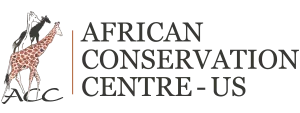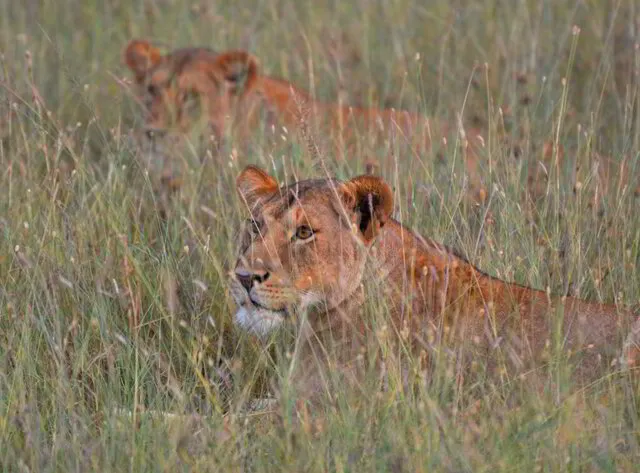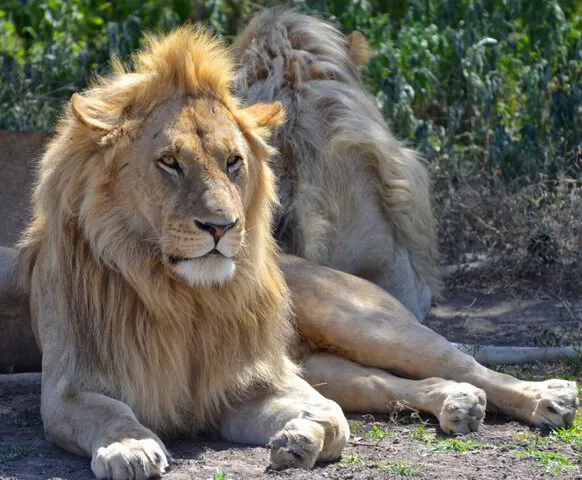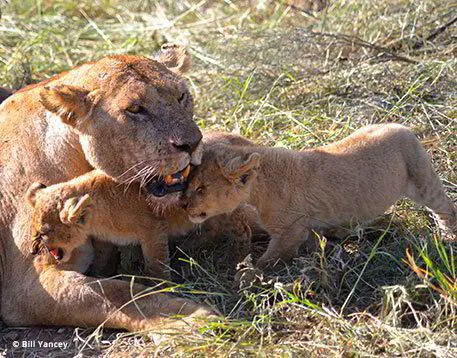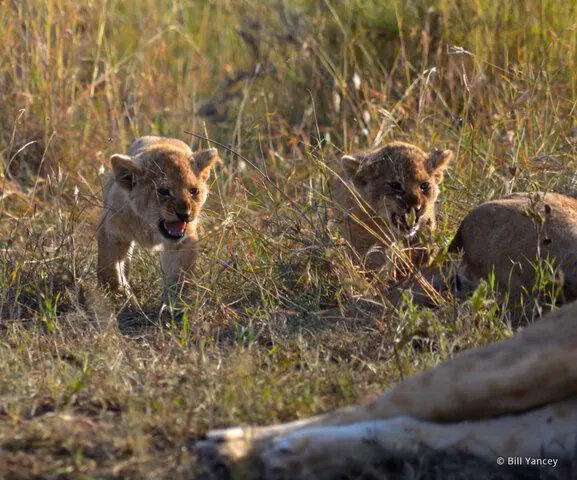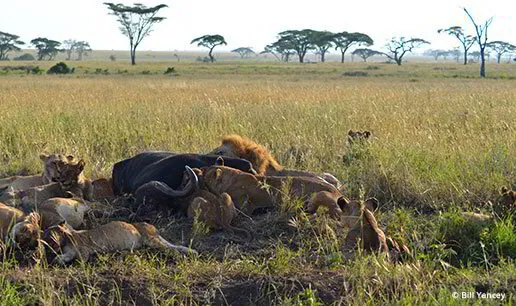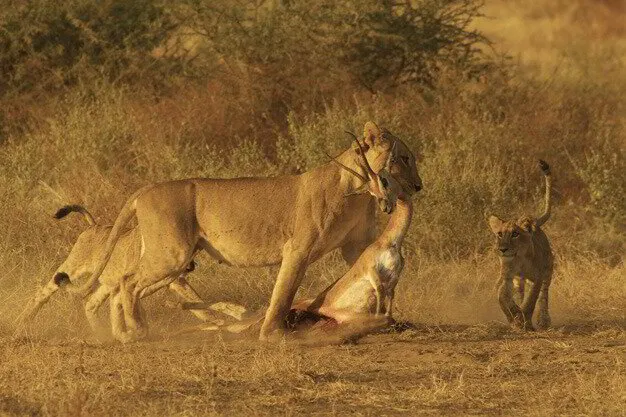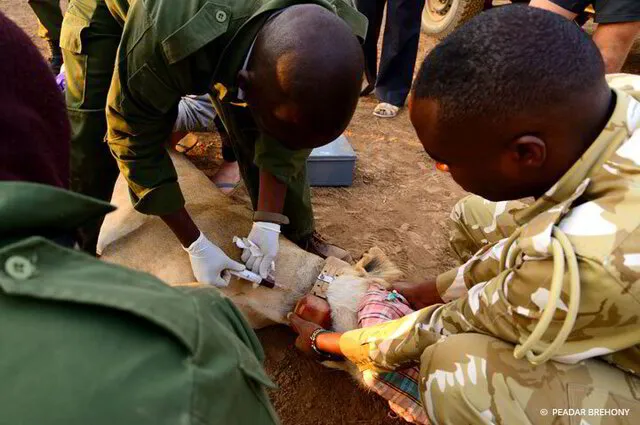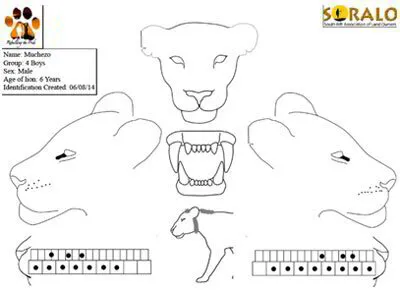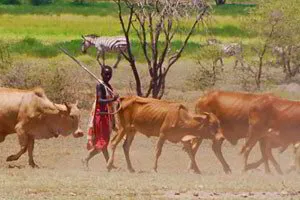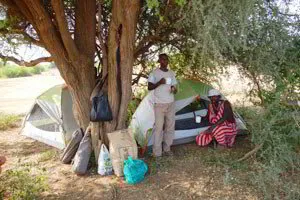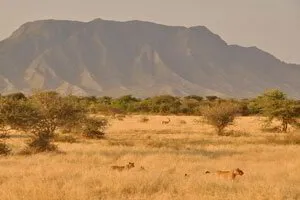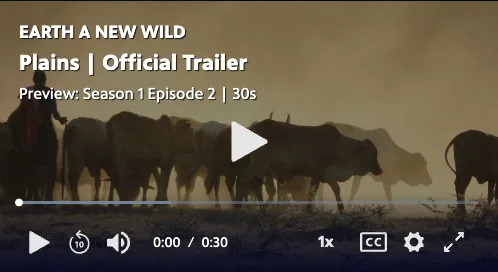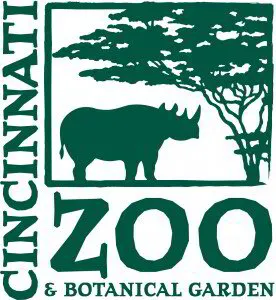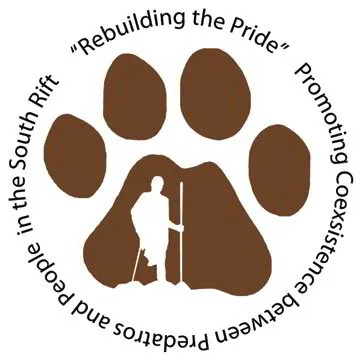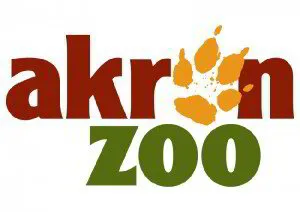Photo © Bill Yancey
EXPLORE
Rebuilding the Pride
Increasing Lion Populations & Reducing Human-Wildlife Conflict
Rebuilding the Pride, run by the South Rift Association of Landowners (SORALO), a Maasai landowner group, aims to increase lion and other carnivore numbers across the South Rift area of Kenya. The program, established in 2010, focuses on reducing human-wildlife conflict, preventing range fragmentation and maintaining healthy prey numbers.
Rebuilding the Pride explores the basis of traditional practices among pastoralists that allow herders to coexist with wildlife and minimize conflict with predators. The lion serves as a signature species for conserving other large carnivores, including wild dogs, cheetah, leopards and striped and spotted hyenas. Rebuilding the Pride also refers to the pride communities themselves take in conserving wildlife!
Progress
Population Increases
The lion population within the area has expanded from between 38-45 to 58-65 individuals and the prey base is continuing to increase.
GPS Tracking
Since June 2012, five lions within the area have been fitted with GPS collars. The collars have allowed the team to closely track the movements and population dynamics of different prides within the area.
Community Perceptions
Understanding the socio-economic factors that promote positive perceptions of carnivores and foster coexistence in a human dominated landscape are an essential part Rebuilding the Pride’s mission. The program has begun a multi-site comparison to explore these questions further. Initial analysis of questionnaire data collected by the Ruaha Carnivore Project in Tanzania, Rebuilding Pride in Southern Kenya (Amboseli and South Rift), and the Hwange Lion Project in Zimbabwe have yielded some interesting initial results. The data shows substantial differences in perceptions towards coexistence across all three study sites. Southern Kenya stands out as the only site that where positive perceptions towards coexistence were the norm rather than the exception. Results demonstrate that there is no one solution to resolving human-wildlife conflicts but technical strategies for conserving lions such as education, land use planning, and alternative livelihoods, must build and work through community institutions, adopting a case-by-case approach.
Mobile Monitoring
Rebuilding the Pride recently expanded its scope and effectiveness by establishing a mobile carnivore-monitoring unit to compliment their existing rapid response unit. The role of the mobile monitoring unit is to track lion and livestock movements, identify conflict hotspots, feedback information to livestock herders, and report cases of lost livestock and depredation to the rapid response team. Establishment of a mobile monitoring unit fully equipped with tents, cameras and GPSs has allowed our team to focus on more remote regions of the ecosystem. The unit has also worked to build strong lines of communication with local herders and herd owners allowing for the quick and effective flow of information relating carnivore movements and human-wildlife conflict. Two additional carnivore resource assessors have been hired to compliment our existing team.
Media
These videos feature the impacts of Rebuilding the Pride.
